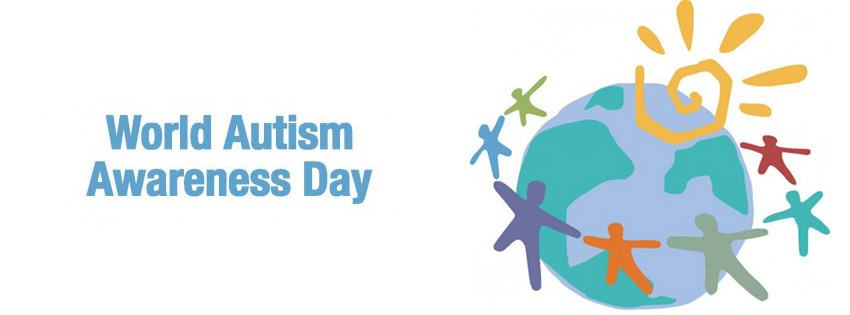News
World Autism Awareness Day – Learn, Care & Share
Today marks World Autism Awareness Day.
Courtesy of the National Autistic Society UK, here is information which can help you understand the spectrum better.
Lots of love to parents with Autistic children and also adults with autism.
What is autism?
If you’re autistic like me, it means your brain is wired differently. And that can make us see, hear and feel the world in a different way to other people. Sometimes we find everything overwhelming. It’s like all our senses are firing, all at once. Like we have no filter. Like we’re getting too much information. Sometimes it can mean we’re skilled in things that other people aren’t. Sometimes it means the things everyone else finds so easy are the most unbearable challenges we could imagine.
Everyone on the autism spectrum is different. Some of us find it difficult to tell people what we need, and how we feel. While some of us find it hard to understand people, how they expect us to behave. It works both ways, though. I feel misunderstood. I try my hardest every day, but I feel like I always get it wrong.
So if you see someone having a meltdown, don’t judge them – think ‘TMI’ instead, take time, make space and imagine. It can make a world of difference.
Top tips
The National Autistic Society has put together a series of top tips to help you to be more understanding towards autistic people and their families.
These suggestions have been put together by autism experts and autistic people.
UNDERSTAND AUTISM, THE PERSON AND WHAT TO DO
“My son’s not naughty – he’s autistic.
It’s just that sometimes he gets overwhelmed. The bright lights reflecting on the shopping centre floor. The different music coming from different shops. The smell of the perfumes on every shopper, the wafts of coffee, tea, burgers, chips. Every face, every conversation. Everything, all at once.
So if you see someone having a meltdown, don’t judge them – think ‘TMI’ instead. It can make a world of difference to someone like my son.”
TAKE TIME
Give the person some time – it can take a while to recover from an information overload. Calmly ask them (or their parent or friend) if they’re OK, but bear in mind they’ll need more time to respond than you might expect. You see, with so much going on around them, autistic people sometimes need more time to process information. So if you ever ask a question and don’t get an answer right away, just wait. It might seem like the meltdown will never end, but it will. So just be patient, and be there.
MAKE SPACE
Try to create a quiet, safe space as best you can. Ask people to move along and not to stare; turn off loud music and turn down bright lights – whatever you can think of to reduce the information overload, try it.
IMAGINE
Imagine feeling so overloaded that you just couldn’t cope. Imagine the difference it would make if someone showed you a little kindness, rather than judging you as a naughty kid having a meltdown, or a ‘weirdo’ flapping their hands. A little understanding can go a long, long way – just a nod or some words of kindness can really put someone at ease.
Finding it hard to imagine? Then find out from autistic people what it really feels like.
These tips were written by autism experts, autistic people and their families to help you be more understanding.






















